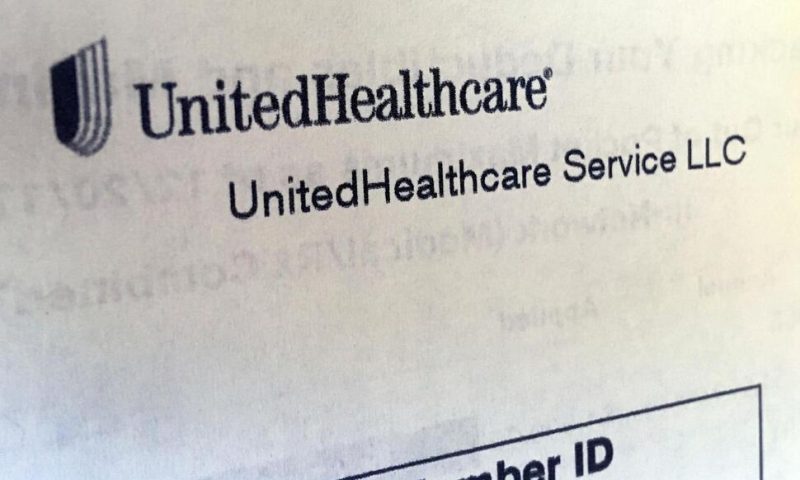UnitedHealth Group delivered a better-than-expected first quarter and raised its 2022 forecast, as growth in Medicare Advantage coverage and care delivery once again helped the health care giant.
UnitedHealth Group delivered a better-than-expected first quarter and raised its 2022 forecast, as Medicare Advantage grow and care delivery once again helped the health care giant.
The nation’s largest health insurance provider said Thursday that enrollment in its Medicare Advantage plans grew nearly 9% to about 6.9 million people, and the company also booked growth in other government-funded coverage. Its larger commercial enrollment stayed nearly flat.
UnitedHealth is the biggest provider of Medicare Advantage plans, which are privately run versions of the federally funded Medicare program.
The company runs UnitedHealthcare, a health insurance business that covers more than 50 million people mostly in the United States. It also has been squeezing more growth out of its Optum segment, which runs one of the nation’s largest pharmacy benefit managers and a growing number of clinics and urgent care and surgery centers.
First-quarter operating earnings, which don’t count interest expense and taxes, slid for the company’s health insurance business but jumped almost 20% to $3.2 billion for Optum compared to last year.
UnitedHealth said the revenue it drew per customer from its care-providing Optum Health business grew by 33% as the company expanded deeper into value-based care. That involves reimbursing doctors based more on the patient’s health instead of for each service provided.
UnitedHealth and competitors like the drugstore chains CVS Health and Walgreens are all trying to become regular sources of care for more customers, especially those with Medicare Advantage plans.
The idea is that regular care will keep patients with chronic health problems like diabetes healthy and out of expensive hospitals. It’s an approach gaining favor with bill payers like insurers and employers.
Overall, UnitedHealth earnings grew more than 3% to $5.03 billion in the first quarter, even though the company’s largest expense, medical costs, climbed 17%.
Company leaders told analysts Thursday morning that UnitedHealth started the quarter with about 40,000 COVID-19 hospitalizations in January. That marked the highest total of any month since the pandemic started more than two years ago.
That total then dwindled to about 2,000 hospitalizations by March, as the omicron surge of virus faded.
UnitedHealth’s adjusted results totaled $5.49 per share in the first quarter, and total revenue jumped more than 14% to $80.1 billion.
Analysts expected, on average, earnings of $5.36 per share on $78.73 billion in revenue in the second quarter, according to FactSet.
For the full year, UnitedHealth now expects adjusted earnings of $21.20 to $21.70 per share. That’s an increase of 10 cents on both ends of the range from a forecast it laid out late last year.
FactSet says analysts expect earnings of $21.61 per share for 2022.
UnitedHealth’s forecast hike was conservative compared to how much the company beat first-quarter expectations, Jefferies analyst David Windley said in a research note. But he added that this was expected given the unknown nature of the pandemic.
Shares of Minnetonka, Minnesota-based UnitedHealth Group Inc. climbed nearly 2% to $546.56 Thursday morning. The Dow Jones Industrial Average, of which UnitedHealth is a component, rose slightly.
UnitedHealth’s share price has more than doubled over the past couple years.

